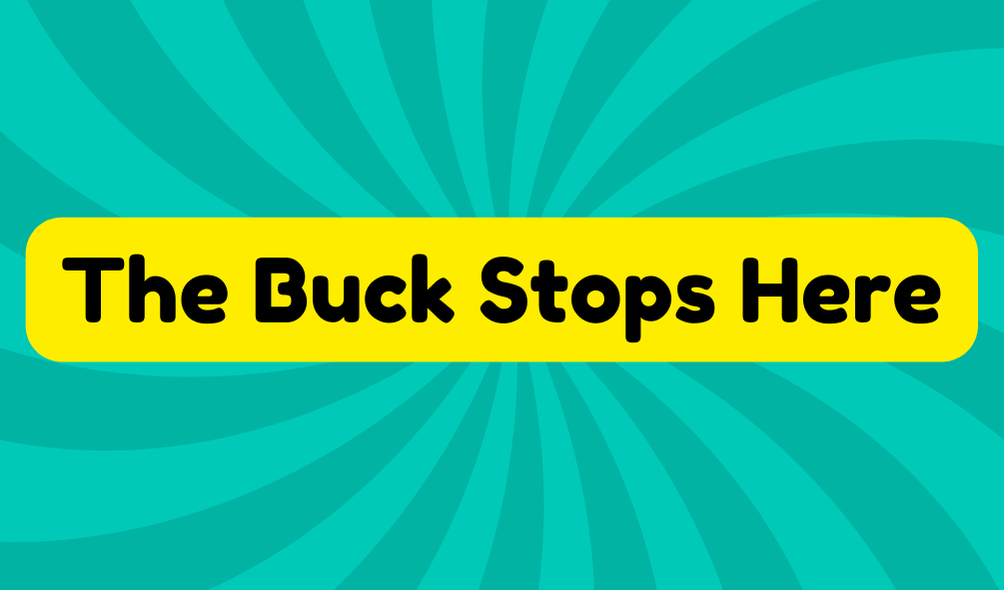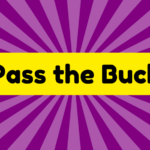"The buck stops here" means you need to take responsibility rather than pass it on to others. This phrase, popularized by President Truman in the late 1950s, symbolizes accountability and integrity, especially in leadership roles. When you choose to own your decisions, you foster trust and teamwork, essential for a healthy environment. On the flip side, avoiding responsibility can sabotage progress and innovation. Today, understanding this concept is more vital than ever, as issues in leadership ethics arise. If you're curious about how this applies in various scenarios, there's much more to explore.
Synonyms
When discussing the phrase "the buck stops here," you might come across several synonyms that convey a similar sense of finality in responsibility. These alternative phrases and linguistic variations illustrate different nuances of accountability that can spark your interest. Consider these options:
- The buck stops with
- The buck ends with
- Responsibility falls on
Each of these expressions reflects the expectation that someone must own the consequences of actions, a point often missed in today's fast-paced dialogue. By focusing on these synonyms, you'll see how they encapsulate what it means to fully embrace responsibility, pushing you to think critically about accountability. In a landscape where passing the buck is common, recognizing these phrases can empower you to champion personal ownership.
Example of Sentences
To illustrate the meaning of "the buck stops here," let's explore some example sentences that embody the principle of accountability. Here are a few that highlight responsibility, ownership, and leadership:
- When unexpected issues arise, a good leader guarantees the solution rests with them.
- After the project failed, she took full accountability instead of shifting the blame.
- At the community meeting, residents acknowledged their shared responsibility for local problems.
Each of these examples demonstrates how accepting responsibility is essential for effective leadership. It's important to remember that avoiding blame doesn't just shield you; it undermines innovation and teamwork. True accountability leads to progress, while passing the buck can stall growth and trust. Be the leader who willingly owns their decisions and fosters an accountable environment.
Origin
The phrase "the buck stops here" originated from the slang expression "pass the buck," which implies shifting responsibility to someone else. This concept gained cultural significance after President Harry S. Truman popularized it in 1959, using a sign on his desk to highlight personal accountability. Historically, the phrase reflects a time when leaders were often reluctant to own their decisions, opting instead to delegate blame. By embracing the phrase, Truman aimed to reclaim integrity in leadership. It also illustrates how language evolves to embody values like accountability, pushing for a more responsible governance approach. Understanding this origin helps you see the importance of owning up to consequences rather than sidestepping them in today's complex world.
Collocations
Emphasizing accountability, collocations associated with "the buck stops here" reveal its deep-rooted implications in both personal and professional contexts. You'll find that certain phrases consistently emerge around this concept:
- *Accountability leaders* guarantee decisions aren't shifted away from them.
- *Responsibility ownership* highlights a commitment to outcomes.
- Making hard choices reflects a willingness to face consequences.
These collocations emphasize that true leadership demands ownership and transparency. When you hear "the buck stops here," remember it's not just about words; it's a benchmark for action. If leaders don't embrace these principles, both trust and progress might falter. So, as you navigate your own path, make certain you're not just passing the buck—own your decisions and the impacts they create.
How to Use in Everyday Language
Accountability is essential in everyday interactions, and using the phrase "the buck stops here" can powerfully convey your commitment to taking responsibility. In everyday conversations, whether chatting with friends or discussing a project with colleagues, saying this phrase asserts your willingness to own up to outcomes. In managerial settings, it presents a strong leadership stance, showing you won't push blame onto others. You might say, "I'll figure this out; the buck stops here." It challenges you to embrace your role, paving the way for innovation and accountability. Remember, words matter, and using this assertion reflects a proactive approach, encouraging others to step up and do the same. After all, embracing responsibility fosters a culture of trust and collaboration.
Why Is It Still Relevant Today?
In today's fast-paced world, the phrase "the buck stops here" remains highly relevant as it underscores the importance of personal accountability in both leadership and everyday life. With rising concerns around leadership ethics, it's vital that you embrace responsibility. When you own up to your actions, you set a positive example, fostering innovation and accountability today.
| Aspect | Importance |
|---|---|
| Accountability | Builds trust within teams |
| Leadership | Directs clear decision-making |
| Ethics | Guarantees fairness and transparency |
| Innovation | Promotes creative problem-solving |
In our ever-evolving landscape, failing to take accountability can have serious consequences, both personally and organizationally. It's time to recognize that the buck stops with you.







